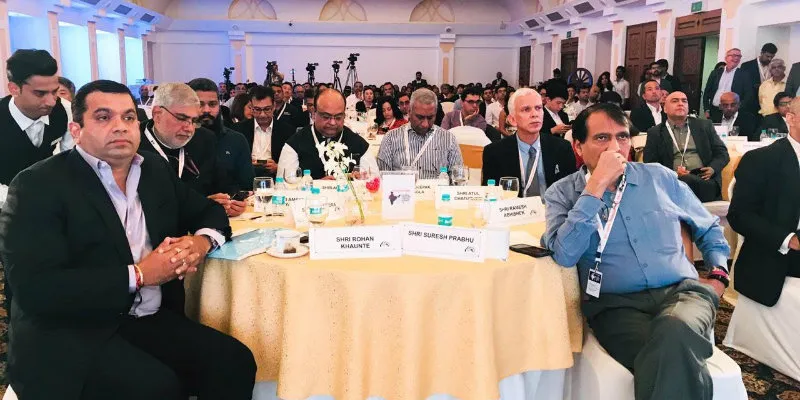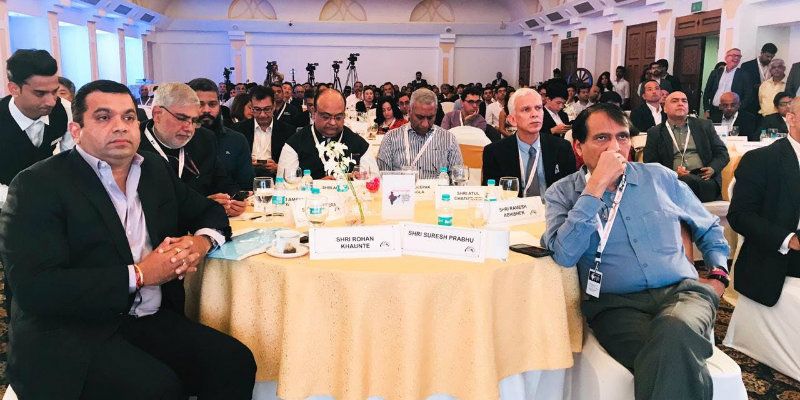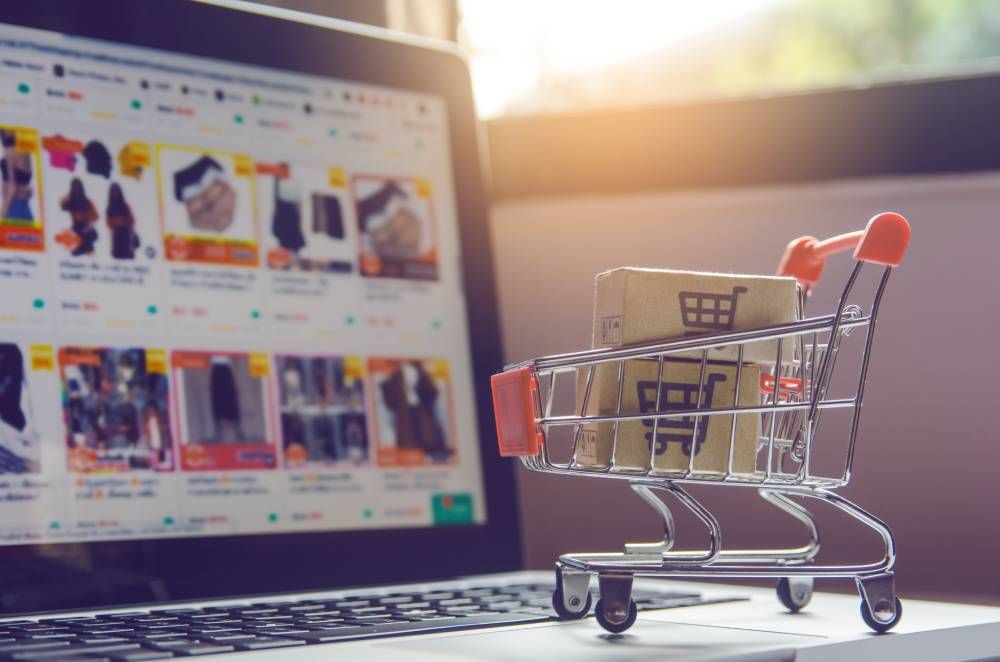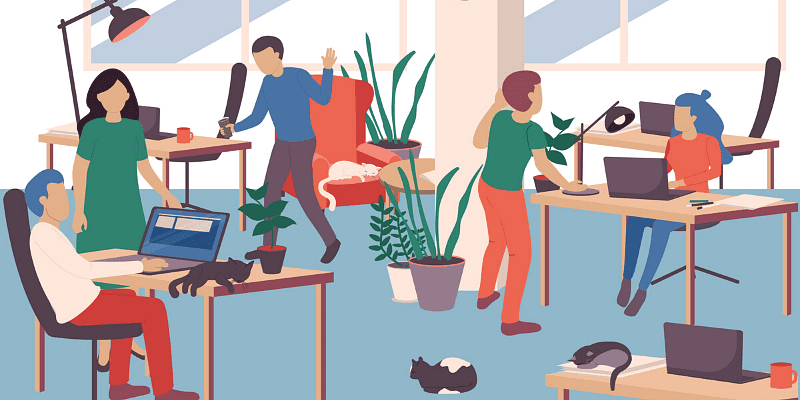Tier 2 &Tier 3 cities driving monetisation of the new Indian opportunity, say startup founders
At the recent Global VC Summit 2018 in Goa, international fund managers, startups, government officials and key stakeholders from the startup ecosystem came together to deliberate on topics such as innovation in India, disrupting traditional models, enabling regulations and the 'India advantage'.
The event, an initiative of the Department of Industrial Policy & Promotion (DIPP) and the Government of Goa - in partnership with the International Finance Corporation and Indian Private Equity & Venture Capital Association, was held in a packed ballroom next to a private beach.
One of the discussions focused on Monetising the New India Opportunity. IFC South Asia VC Lead Ruchira Parekh moderated the panel which included Abhinay Choudhuri, Co-founder of bigbasket; Yashish Dahiya - CEO of PolicyBazaar; Shweta Bhatia, Eight Road Ventures; and Abhinav Jain, Founder -Shop101. They discussed how their startups have been built, scaled and have reached Tier 2 and Tier 3 cities.

YourStory highlights the key takeaways from the interesting session on how successful businesses have been touching the lives of consumers and delivering their services.
What drives bigbasket?
Top on the list is a presence in 25 cities, 15 of which fall in the Tier 2 category. “Close to 12 percent of our toplines and 15 percent of our consumer base (10 million customers) come from Tier 2 cities,” said Abhinay Choudhuri.
Tier 2 cities have grown three to four percent faster than Tier 1 cities for the Bengaluru-based online grocery platform.
“We thought cities like Patna and Lucknow will not have such demands but they are doing phenomenally well,” Abhinay added.
While convenience is the proposition in Tier 1 cities, Tier 2 and Tier 3 cities do not have the problems that metros face and brands do not drive the grocery segment. Facing challenges on creating the right proposition for consumers in Tier 2 and Tier 3 cities, an assortment of products and offering them at the right price has helped team bigbasket grow.
“Assurance of fresh products, at the right price is what we are focusing on,” said Abhinay.
Having collection centres across the country and providing an outlet to farmers to sell their products in the deserved price has helped bigbasket get more produce from farmers and sell them at a lower price to the ultimate consumer.
"We educate farmers to expand their organic produce and thus, bring down the price of the produce," he added. bigbasket is also helping create direct employment in Tier 2 cities by employing close to 2,000 people.
Expansion of Policybazaar beyond Tier I cities
Started in 2008, Policybazaar now accounts for half of the country's life coverage and most of these come from outside the top 10 cities of India, said CEO Yashish Dahiya. “These mostly get curtailed because while people from Tier 2 and Tier 3 cities have income, they do not have enough support documents,” said Yashish.
Despite paying the premiums, half of the customers become ineligible because they cannot provide the required documents.
Six months ago, Policybazaar introduced a model, which is still awaiting regulatory clearances. It aims to drive growth among the non-salaried business class and make the on boarding of customers easier.
“One challenge of our business is that people are not aware of our products. Rural people do not know that for Rs 100 a month, they can get a decent life cover,” said Yashish. “Educating the people on this topic will help us solve the problem," he added.
Shop101's reach so far
Shop101 enables people to sell their products using social media channels including Facebook, Instagram and WhatsApp. "In effect, we are creating micro-businesses in the segment that wants to sell but didn't have the chance to do that," said Abhinav.
“Our platform comes without any investment and let users start a business at zero cost. Fulfilment, logistics and technology are taken care of by us,” he added. For instance, Shop101 provides self-explanatory videos to explain the reselling of products to users living in small cities and towns.
According to the founder, more than 70 percent of their sales come from Tier 3 and Tier 4 cities.
"In our model, marketing is done by the people itself and the dollars that would have gone in marketing in any other platform are now actually redistributed as their income. Resellers on our platform also help us get more people onboard through word of mouth and this drives more sales," says Abhinav.
Sellers on the Shop101 platform help curate and drive growth of products in Tier 3 and Tier 4 cities. "We club the beauty of the traditional retail model with an e-commerce model,” he says.
“Tech adoption has slowed down because most of the tech platforms are in English and the user is expected to read and make a choice,” says Abhinav. Shop101 solves this problem by sharing a description of products in multiple languages, and doing away with text whenever they can.
Investors take
Shweta Bhatia, Partner at Eight Road Ventures, mentioned TopperLearning while referring to businesses that have achieved great heights. According to her, the edutech platform has seen four and a half million unique sign-ups in the last 12 months and all of them from Tier 2 and Tier 3 cities in India.
"The availability of the internet at affordable prices has accelerated this since one can now easily watch video lectures on mobile applications," said Shweta.
Monetising users from these cities is a challenge that TopperLearning faces. "Methods to get users to consider the premium versions is what TopperLearning is working on right now," said Shweta.
She believes that e-commerce horizontals like Flipkart and foodtech platforms like Swiggy and Zomato are only serving the “India One’s”, namely the 10 to 20 million frequent internet users.
“Given that data and internet is now cheap, people are willing to interact with the data,” said Shweta.
Eight Road Ventures is excited about companies trying to solve problems that tier 2 cities face. While Ola and Uber are unaffordable for the masses, companies should now concentrate on cheaper options - like a bus aggregation platform –which allow real-time tracking of buses, she said, adding, “The experience will be more standardised, optimising and add supply areas where there is more demand.”
She believes that dock-less scooter rental companies are the next big thing. “All you need is two to three rides a day to break even.” According to her, what these companies have to work on is how to manage the capital intensive business and not get vandalised.
YourStory is the digital media partner for the Global Venture Capital Summit 2018.







![[Funding alert] Wonderchef raises Rs 150 Cr led by Sixth Sense Ventures](https://images.yourstory.com/cs/2/b87effd06a6611e9ad333f8a4777438f/funding-1630344931171-1636700432294.png)

